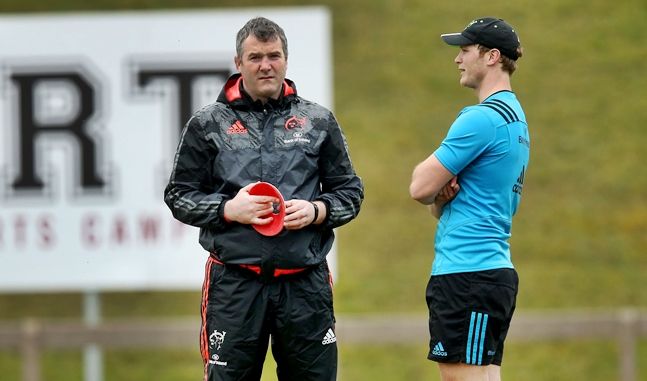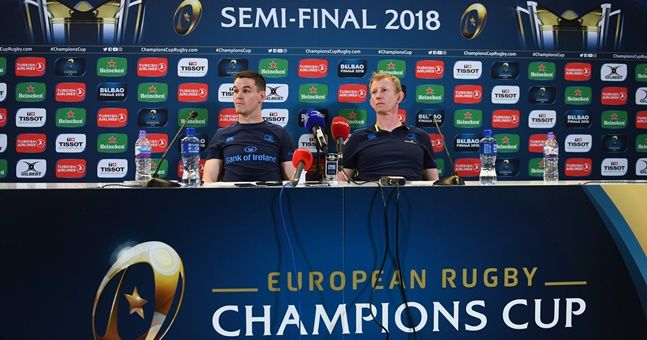

Share
4th August 2018
03:30pm BST

"I didn't just wake up one day and realise, it was something I'd been interested in during my playing days," he told Sky Sports. "Football has always been in my life, I grew up into a footballing family and had a long career.But it wasn't an opportunity he had to take. Lampard could have served an apprenticeship as an assistant manager like Zinedine Zidane at Real Madrid or Thierry Henry with Belgium. He could have transitioned into a completely different career outside of football like so many other former professional athletes or he could have continued his punditry work on the BBC and BT Sport as a football analyst. But he decided to throw himself into contention for the Derby job this summer and now he's Frank Lampard, Derby County manager, and less so Frank Lampard, former Chelsea midfielder. Time will tell if Lampard will be a successful manager or not but professional football in the UK has a lot of clubs that are willing to take risks on prospective managers and there are prospective managers like Frank Lamapard and former England teammate Steven Gerrard that are more than willing to take the plunge into football management with those risk taking clubs. Irish Rugby operates in a different sphere with only four professional clubs but the union have also taken risks with prospective coaches in the past; namely, and most recently, the late Anthony Foley and Leo Cullen."Probably during my twenties I wasn't too focused on what might happen afterwards, but into my thirties I certainly viewed things with a different eye. "I tried to take in as much as I could under the managers I played under and the team-mates I played aside. When this opportunity came along, it was one I had to say yes to."
 Foley was widely lauded for having a fantastic rugby brain throughout his decorated playing career while Leo Cullen's former Leinster teammates had him nailed on as a future coach long before the Blues allowed him to take over from Matt O'Connor in 2015.
However, both Foley and Cullen struggled in their first seasons as head coaches at Munster and Leinster.
Cullen's Leinster won just one game from a possible six in the Champions Cup Pool stages in his first season in charge at the province while Munster also bowed out in the Champions Cup Pool stages in Foley's first campaign as head coach the season before.
It was a lot to ask of both Foley and Cullen at that stage in their coaching careers but the reality is that provincial rugby in Ireland asks a lot of prospective coaches.
Cullen had served just one year as Leinster's forward coach before he took the reins in Belfield while Foley served for three seasons as Munster's forwards coach before he eventually succeeded Rob Penney as head coach in 2014.
The provinces were under performing during the beginning of their tenures and the IRFU subsequently enlisted the help of former England head coach Stuart Lancaster and New Zealand World Cup winning coach Graham Henry to assist Cullen at Leinster, and former Stormers head coach Rassie Erasmus to assist Foley at Munster, and the fortunes of both clubs began to improve dramatically while the newcomers continued to learn on the job.
Foley was widely lauded for having a fantastic rugby brain throughout his decorated playing career while Leo Cullen's former Leinster teammates had him nailed on as a future coach long before the Blues allowed him to take over from Matt O'Connor in 2015.
However, both Foley and Cullen struggled in their first seasons as head coaches at Munster and Leinster.
Cullen's Leinster won just one game from a possible six in the Champions Cup Pool stages in his first season in charge at the province while Munster also bowed out in the Champions Cup Pool stages in Foley's first campaign as head coach the season before.
It was a lot to ask of both Foley and Cullen at that stage in their coaching careers but the reality is that provincial rugby in Ireland asks a lot of prospective coaches.
Cullen had served just one year as Leinster's forward coach before he took the reins in Belfield while Foley served for three seasons as Munster's forwards coach before he eventually succeeded Rob Penney as head coach in 2014.
The provinces were under performing during the beginning of their tenures and the IRFU subsequently enlisted the help of former England head coach Stuart Lancaster and New Zealand World Cup winning coach Graham Henry to assist Cullen at Leinster, and former Stormers head coach Rassie Erasmus to assist Foley at Munster, and the fortunes of both clubs began to improve dramatically while the newcomers continued to learn on the job.
 The IRFU showed patience with both Foley and Cullen, which has since paid dividends, but their early struggles should encourage the likes of Paul O'Connell (Stade Francais forwards coach), Ronan O'Gara (Crusaders backs coach), Mike Prendergast (Stade Francais backs coach), Girvan Dempsey (Bath attack coach), Bernard Jackman (Dragons head coach) and others to avail of coaching opportunities abroad.
Plus, of the last 17 provincial appointments, just four Irish coaches - Eric Elwood, Brian McLaughlin, Anthony Foley and Leo Cullen - have landed the top job, five you want to count Neil Doak under Les Kiss at Ulster.
By going abroad, coaches also gain a new experience in a new culture with new players, they look at how different coaches approach the same job and they can gain a new perspective on a sport they may well have known for the majority of their lives.
Everyone wants to see O'Gara and O'Connell return to Irish Rugby and lead Munster or Ireland to success, just as they did for so long as players, but distancing themselves from the Irish Rugby bubble and availing of opportunities abroad is a logical step for both of them as coaches.
It's likely that both O'Connell and O'Gara will one day assume the role of head coach, O'Gara potentially in the not too distant future given his latest success with the Super Rugby winning Canterbury Crusaders, but this current stage of their careers should be used to gain as much experience as possible because as we've seen with Foley and Cullen, when an assistant is finally thrust into the hot seat, experience, or a lack thereof, can often be the only thing that they can lean on.
Smart people, with or without a plethora of coaching experience, can struggle in the pressurised world of professional rugby coaching but increasingly prospective Irish coaches are looking beyond the pale for their break in the game.
With the success of Joe Schmidt, Pat Lam, Rassie Erasmus, Stuart Lancaster and now Johann van Graan in recent seasons it would be hard to blame Irish Rugby and the provinces for looking abroad when making their coaching appointments and maybe more Irish coaches should follow suit at a time when opportunities at the top of the provincial game are fleeting.
The IRFU showed patience with both Foley and Cullen, which has since paid dividends, but their early struggles should encourage the likes of Paul O'Connell (Stade Francais forwards coach), Ronan O'Gara (Crusaders backs coach), Mike Prendergast (Stade Francais backs coach), Girvan Dempsey (Bath attack coach), Bernard Jackman (Dragons head coach) and others to avail of coaching opportunities abroad.
Plus, of the last 17 provincial appointments, just four Irish coaches - Eric Elwood, Brian McLaughlin, Anthony Foley and Leo Cullen - have landed the top job, five you want to count Neil Doak under Les Kiss at Ulster.
By going abroad, coaches also gain a new experience in a new culture with new players, they look at how different coaches approach the same job and they can gain a new perspective on a sport they may well have known for the majority of their lives.
Everyone wants to see O'Gara and O'Connell return to Irish Rugby and lead Munster or Ireland to success, just as they did for so long as players, but distancing themselves from the Irish Rugby bubble and availing of opportunities abroad is a logical step for both of them as coaches.
It's likely that both O'Connell and O'Gara will one day assume the role of head coach, O'Gara potentially in the not too distant future given his latest success with the Super Rugby winning Canterbury Crusaders, but this current stage of their careers should be used to gain as much experience as possible because as we've seen with Foley and Cullen, when an assistant is finally thrust into the hot seat, experience, or a lack thereof, can often be the only thing that they can lean on.
Smart people, with or without a plethora of coaching experience, can struggle in the pressurised world of professional rugby coaching but increasingly prospective Irish coaches are looking beyond the pale for their break in the game.
With the success of Joe Schmidt, Pat Lam, Rassie Erasmus, Stuart Lancaster and now Johann van Graan in recent seasons it would be hard to blame Irish Rugby and the provinces for looking abroad when making their coaching appointments and maybe more Irish coaches should follow suit at a time when opportunities at the top of the provincial game are fleeting.Explore more on these topics: